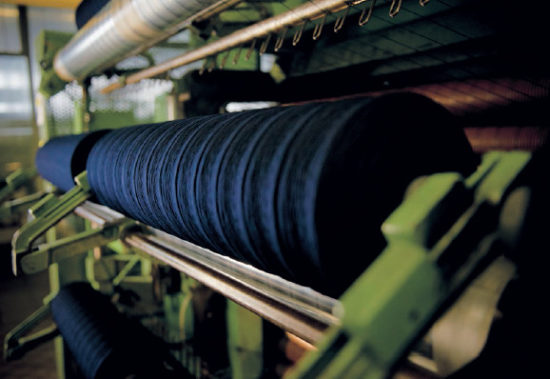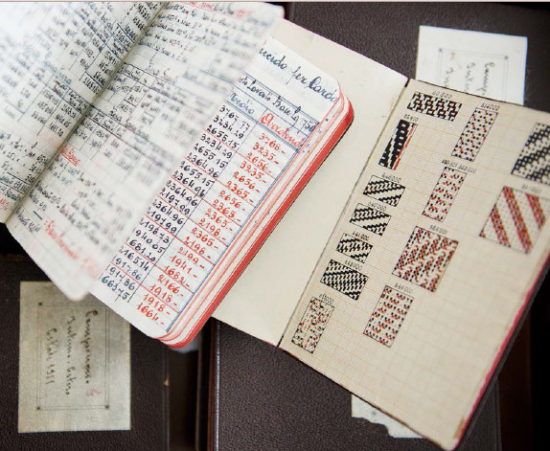Published: Tuesday August 30 2016When Ermenegildo Zegna founded a wool mill in 1910, he had just four looms which he had bought from his father. He located his business in Trivero in the Alpine foothills of Piedmont where the mountain water has only faint mineral traces and makes cloth that is soft and easy to work. Aged just 18, his aim was to make the most beautiful fabrics in the world – and local people saw him as either a dreamer or a madman. But Zegna fabrics quickly became one of Italy’s most acclaimed exports, and the company is now the world’s largest luxury menswear brand.Today, the Ermenegildo Zegna Group has over 7,000 employees worldwide, with 523 stores in more than 100 countries and revenues of EUR1.261 billion in 2015. From producing fine fabrics, it diversified into menswear in the 1960s, later adding accessories, the luxury women’s fashion brand Agnona, fragrances, men’s under-wear, sunglasses and eyeglasses. Over 90 per cent of its sales are exports to the rest of Europe, the Americas and Asia.The very best materialsThe fabrics that have made Zegna famous are made of the very best materials, such as Merino sheep wool from Australia, cashmere from Mongolia and vicuna from Peru. The latter is incredibly soft and fine: vicuna are sheared every other year and typically produce 150 grams of wool, which makes 180 kilometres of thread.
Topics:
Isidore Ryan considers the following as important: Family entrepreneurs, family firms, heritage brands, In Conversation With
This could be interesting, too:
Perspectives Pictet writes House View, October 2020
Perspectives Pictet writes Weekly View – Reality check
Perspectives Pictet writes Exceptional Swiss hospitality and haute cuisine
Jessica Martin writes On the ground in over 80 countries – neutral, impartial and independent
When Ermenegildo Zegna founded a wool mill in 1910, he had just four looms which he had bought from his father. He located his business in Trivero in the Alpine foothills of Piedmont where the mountain water has only faint mineral traces and makes cloth that is soft and easy to work. Aged just 18, his aim was to make the most beautiful fabrics in the world – and local people saw him as either a dreamer or a madman. But Zegna fabrics quickly became one of Italy’s most acclaimed exports, and the company is now the world’s largest luxury menswear brand.
Today, the Ermenegildo Zegna Group has over 7,000 employees worldwide, with 523 stores in more than 100 countries and revenues of EUR1.261 billion in 2015. From producing fine fabrics, it diversified into menswear in the 1960s, later adding accessories, the luxury women’s fashion brand Agnona, fragrances, men’s under-wear, sunglasses and eyeglasses. Over 90 per cent of its sales are exports to the rest of Europe, the Americas and Asia.
The very best materials
The fabrics that have made Zegna famous are made of the very best materials, such as Merino sheep wool from Australia, cashmere from Mongolia and vicuna from Peru. The latter is incredibly soft and fine: vicuna are sheared every other year and typically produce 150 grams of wool, which makes 180 kilometres of thread. Its rarity, lightness and quality means that it is very expensive: one coat requires up to 30 grams of the wool, and a suit can cost as much as USD40,000.
The wool mill still operates in Tivero, with around 400 employees producing the highest -quality fabrics by traditional methods. And the town has also benefited from the founder’s sense of social responsibility, which led him to provide many services for its inhabitants and to enhance the surrounding countryside.

Still family-owned, the Group is now managed by Ermenegildo Zegna’s descendants. It was Angelo and Aldo, his two sons, who took it into the high-end menswear market, launched ready-to-wear collections and made to measure, internationalised production, and opened its first stores in Paris and Milan. Under their children Gildo, Anna and Paolo, Zegna became a truly global company – expanding into new markets such as China in 1991.
For Anna, a grand-daughter of the founder, Zegna’s strong culture of family unity has been a great strength for the group: ‘We have been united now for four generations. Like the rest of my family, I took on a role within the Group based on my education, personal attitude and abilities. My brother Gildo is CEO of the company and my cousin Paolo its Chairman. My personal role has always focused around image and communications, and I am now Image Advisor of the Group.
‘We are lucky that each family member has been able to do what he or she really enjoys, what they are interested in and what they best know how to do. Each family member has grown up surrounded by the business and yet most of us began our careers elsewhere. Mine started at Versace where I worked in the public relations department, and I joined Zegna only in 1984.
‘But although I began my career with another famous fashion brand, I knew from a very early age that I would come to work within what I believe is a truly amazing company — one that still respects the values upon which it was founded. I always wanted to follow my grand-father’s footsteps, largely because I was brought up surrounded by tangible reminders of his vision for the community and the environment.’
Ermenegildo Zegna’s vision was that the quality he sought for his products and the long-term success of his company required a positive relation-ship with the local area and its people — and not just his employees. By 1932, he had built a meeting hall, library, gym, cinema/theatre and public swimming pool in Trivero. Over the next few years, he added a medical centre and a nursery school.
To improve the environment, he planted half a million trees which are now mature forests. He built roads in the region, including the 14-kilometre Panoramica Zegna road linking Trivero to Bielmonte, a tourist resort 1,500 metres above sea level. And his sons continued this approach, building a residential housing estate in 1963, and a ski resort and further residential housing in Bielmonte in 1965.

Anna Zegna continues to uphold her grand-father’s values as President of the Fondazione Zegna. Founded in 2000, the foundation, together with other corporate social responsibility activities, receives more than 5 per cent of the net profits of the Group, and is, she says, ‘an essential part of the Zegna DNA’.
The foundation is based in Casa Zegna, the former family home in Trivero which now houses a small museum and historical archive. These contain a collection of precious fabric samples, documents, photos, videos and various other testimonies from a hundred years of industrial history.
Local commitment
The founder’s commitment to the area around Trivero continues in the Zegna Oasis project, which covers 100 square kilometres along the Panoramica Zegna. Run by Anna and her cousin Laura, it aims to protect and improve the environment, creating a ‘live laboratory’ for nature-lovers, young people and sports enthusiasts who enjoy pastimes such as rock-climbing, winter sports and trekking.
A saying in the Zegna Group is that ‘A great family makes a great company, and a great company makes a great family’ — and there are no signs that either the Group or the family is running out of steam. Its global expansion into emerging markets continues, and it is diversifying through partnerships with leading premium luxury brands such as Girard-Perregaux, the Swiss watchmaker.
Anna Zegna says that she hopes the Group will continue to remain a family-owned business. ‘I have two children and my wish is that they follow their passions and decide their own paths. But if they want to join the company in the future, they must first acquire working experience outside Zegna. We adopted this rule for the family because we want the new generations to get a wider understanding of the business and to experience other realities.
‘Our values over more than a hundred years are the identity and pillars upon which Zegna is built. The work we are doing on a social and ecological scale is building something that will last and helping local communities to continue these initiatives.’
